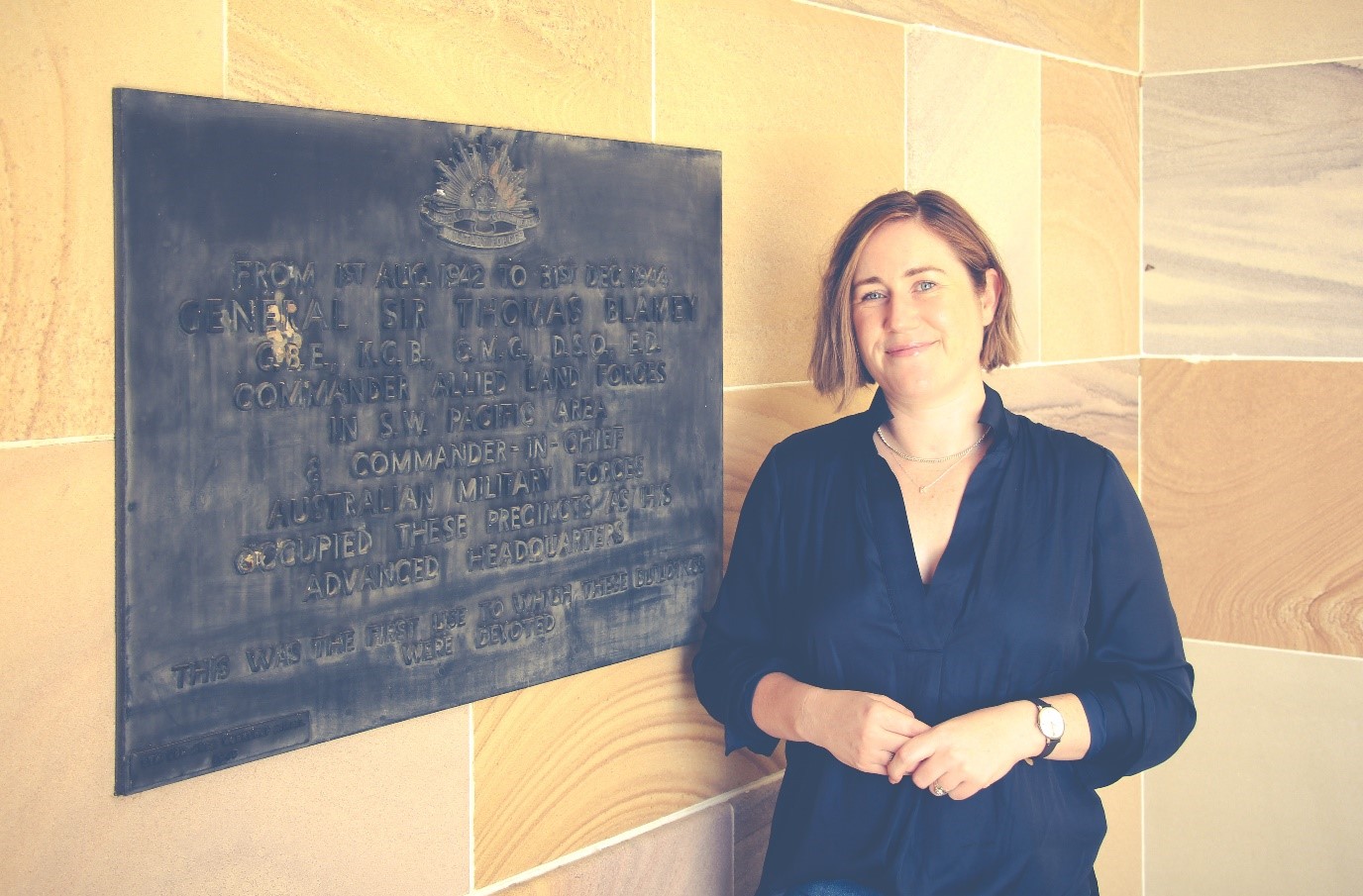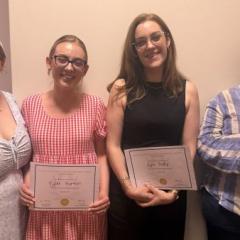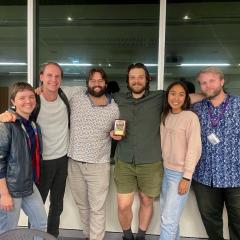How di d I get interested in studying history? I was born in England in North Yorkshire – very close to the village where Captain Cook grew up. I was baptised in the same church as he was. I remember as a kid going to Whitby on the coast and seeing the ancient abbey there, and the church and graveyard which was founded in the 12th century. So history was all around me from a young age, and my parents – especially my Mum - fostered in me an appreciation for it.
d I get interested in studying history? I was born in England in North Yorkshire – very close to the village where Captain Cook grew up. I was baptised in the same church as he was. I remember as a kid going to Whitby on the coast and seeing the ancient abbey there, and the church and graveyard which was founded in the 12th century. So history was all around me from a young age, and my parents – especially my Mum - fostered in me an appreciation for it.
We moved to Australia when I was about 5 and I was raised in Queensland. Like everyone else who grows up in Queensland and who visited the Great Barrier Reef on holidays, I decided I wanted to be a Marine biologist, so I did a science degree. I got to the end and realized it was not for me. I felt that as an undergrad I was being taught what to think, not how to think.
I took history as electives and those courses were so inspiring and freeing. I was reading so widely about the past, about indigenous history, about witchcraft, about war and conflict. It felt like I was having too much fun!
In science, I was studying parasitology. We were given an assignment to write about parasites in human history; I had recently read a book about the Second World War and prisoners of the Japanese, so decided to write about that. The feedback I received from the lecturer was that I wrote a really good history essay but not so good of a scientific report! But I had loved researching and writing it, and that was the turning point for me. I did a degree in history and literature, and I really enjoyed delving into other past worlds.
History shows us how ordinary people have coped in extraordinary circumstances. I’ve been particularly interested in this with respect to Australians at war since my honour’s degree. My PhD, turned into a book, explored Australians in captivity under the Ottoman Turks. This was the first time they had been the subject of any sustained study, and it was so exciting to be able to show how they had been active agents in their experiences rather than passive victims.
I’m still focused on Australian war history. Understanding what happens in the gap between death in war and commemoration is the topic of my current DECRA funded by the Australian Research Council. I’m examining the changing policies, practices and attitudes that have shaped the treatment of Australian war dead from the time of the First World War to now. And mapping that against the dramatic changes in warfare, alliances, forensic science and so on that have taken place over the last 100 years.
I’m sometimes asked what keeps me going to study a topic that is so morbid. Isn’t studying death and war a little depressing? A little! But studying death, and how the living treat the dead, tells us so much about what people value in life and what they see as important. In my latest article, for example, I was able to show how emaciated, overworked and sick POWs of the Japanese expended what little energy and resources they had to provide proper burials and funerals for their fellow POWs who died on the Burma-Thai Railway. It was so important to them to restore the humanity of those who had died in such inhumane conditions.
The grand narratives about war are powerful in Australia, they are almost sacred. My work intends to be disruptive, but respectfully so. I am interested in offering counter-narratives, and showing that there is a spectrum when it comes to experiences of war. I want to open space to get people to think about the realities of participating in war, and show how those concepts of heroism, bravery etc that are so readily attributed to Australian soldiers have played out in different wartime contexts – in POW camps, for example, and in the handling of the dead.
When I’m not working I’m enjoying family life, time with my 3 year old daughter Evie, reading fiction, and watching way too much Netflix with a little wine here and there! I recently moved back to Brisbane, after working in Canberra and Newcastle for over 7 years. I grew up in Brisbane and I love it, it’s familiar and relaxed and I have a big family here.
UQ is a such a beautiful campus. At lunch I try to take a break and walk around admiring lakes, gardens, and architecture. There’s a real sense of community here. I have great colleagues whose work I admire and who have reams of expertise and who generously provide me with mentorship. In many ways being back at UQ feels like coming home, like I’ve come full circle from my student days. I feel so fortunate to have the opportunity to inspire and foster that same love for History in my current teaching and research.
Interview by Ryan Williams
Latest
-
-
HPI HDR Poster Competition
3 December 2025 -
HDR Trivia Night (Sem 1)
3 July 2025



